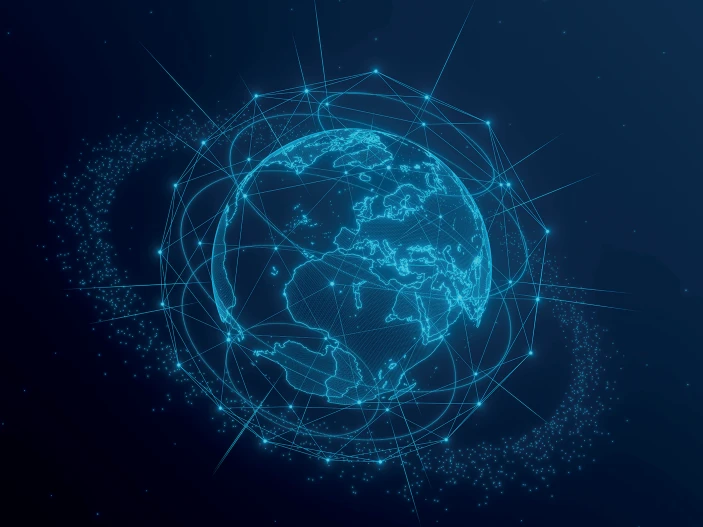

Nature Geoscience Journal reported in October 2024 that Artificial Intelligence (AI) is increasingly enabling geoscience research. Ensuring community trust in its outcomes requires education and transparency.
 Credit: NicoElNino / Alamy Stock Photo
Credit: NicoElNino / Alamy Stock Photo
Public awareness of artificial intelligence (AI) has rapidly grown in the past couple of years with the release of generative AI tools such as ChatGPT (and Perplexity.ai), but the use of AI methods such as machine learning by geoscientists has been accelerating since 2015 (1). This trend is reflected in the increasing number of research articles using AI techniques published in Nature Geoscience since 2021, which are collated in a Focus accompanying this issue, together with opinion pieces on topics pertaining to the use of AI in geoscience.
The articles in this Focus demonstrate the potential of AI techniques to facilitate important insights across Earth science. They also highlight the diversity of geoscience data sources and types that can be analysed using AI tools, as well as the variety of AI methods themselves, from simple classification algorithms to brain-inspired deep learning models. Not only does AI offer efficient approaches to tasks such as collecting and processing data and tuning model parameters, but some AI techniques can directly provide insight into processes, for example by determining the predominant controls on a variable.
AI is particularly valuable for analysing ‘big data’ that, by definition, are too large to handle by conventional approaches, and are becoming more prevalent in geoscience with technological developments in remote and in situ sensing and numerical modelling. Greater adoption of AI techniques may benefit many fields of geoscience, but there are considerable challenges in doing so. For example, many geoscience datasets have attributes that complicate analysis using AI tools, such as multimodality and bias1, and real-world processes are generally complex. In some cases, process complexity may be overcome by integrating AI tools with physical models, as argued for multiscale Earth system modelling in a Perspective in this issue.
Another challenge is the limited experience and knowledge of AI in the geoscience community, which risks inappropriate use of AI yielding flawed results2 and makes thorough vetting of Earth science using AI by experts problematic. It has been argued that addressing this challenge will require reforms to education and research policy to prioritize teaching of and funding research on applying AI to geoscience2. A Comment in this issue by Earth scientists and AI experts proposes that cross-disciplinary collaboration and education could also address this challenge and advance both AI and geoscience, as they argue that geoscience can benefit AI research.
Despite the potential benefits and opportunities of AI, data and process complexity and unfamiliarity with AI are contributing to the apparent lack of trust in the research community in the use of AI in geoscience1,2. In a Q&A in this issue, the interviewees — all Earth and environmental scientists using AI in their research — suggest that to improve trust in the use of AI, transparency is critical. They concur that transparency requires making data, code, and models available, and using physically explainable AI methods instead of ‘black-box’ approaches that produce results without the user knowing how they are generated. As for any approach, we encourage such transparency in the papers we publish by requiring data to be FAIR (findable, accessible, interoperable, and reusable)3 and recently by making it easier to share and peer-review code4.
AI offers great opportunities but poses a great challenge for geoscience. The Focus associated with this issue highlights how AI can advance geoscience if utilized appropriately. Realizing this potential will require a concerted effort to educate and equip geoscientists with the necessary knowledge and expertise to understand AI and its limitations, and to foster a culture of transparency.
See References in paper.
Managed by I2M Consulting, LLC
